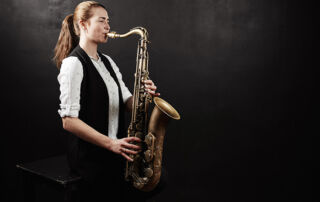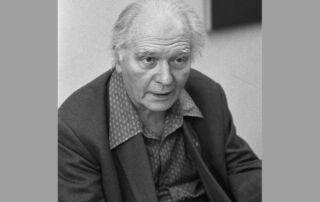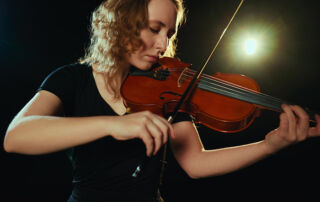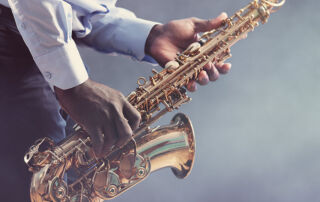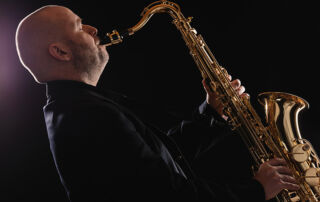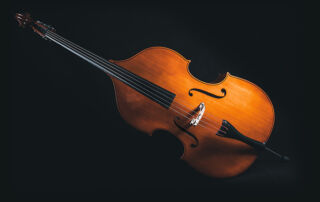Jacqueline Du Pré
Jacqueline Du Pré she was born in Oxford on 26 January 1945. From the age of four, she displayed remarkable talent for the cello.

Photo: "Violoncelist Jacqueline Dupré during her wedding" by Benno Rothenberg / Meitar Collection / National Library of Israel / The Pritzker Family National Photography CollectionLicensed under CC BY 4.0. Available at Wikipedia.
She studied the instrument at the Guildhall School of Music in London with William Pleeth, but also trained in France with Paul Tortelier, in Switzerland with Pablo Casals, and in Moscow with Mstislav Rostropovich.
At the age of fifteen, she won the Gold Medal of the Guildhall School and the Queen’s Prize for Music.
The young soloist, aged sixteen, gave her first public concert on 1 March 1961 at Wigmore Hall in London. It marked the beginning of a remarkable career.
In 1967, during the Six-Day War, she married pianist and conductor Daniel Barenboim in Tel Aviv.
She took part in numerous chamber music sessions with her husband and violinist Pinchas Zukerman.
In 1972, an incurable case of multiple sclerosis forced her to end her career as a concert performer.
She was only twenty-seven years old. She then dedicated herself to teaching and never performed in public again.
In 1976, she was awarded the Order of the British Empire, and in 1980, she received the British Musician of the Year Award—heartfelt tributes to the great voice of a cello that sang for only a brief spring.
She passed away in London on 19 October 1987.

Photo: "Harrell in 2005" by Rob McAlear (discussion)Licensed under Public Domain. Available at Wikipedia.
Lynn Harrell
Born in New York on 30 January 1944 to musician parents, Lynn Harrell decided at the age of eight to learn the cello.
After completing secondary school, he studied at the Juilliard School in New York and then at the Curtis Institute of Music in Philadelphia, where his teachers included Leonard Rose and Orlando Cole.
He made his debut in 1961 with the New York Philharmonic at Carnegie Hall.
Orphaned at the age of 17 (his father died of cancer in 1960, and his mother two years later in a car accident), he joined the Cleveland Orchestra, where he served as principal cellist from 1964 to 1971.
Lynn Harrell gave his first recital in New York in 1971 and subsequently pursued an international career as a recitalist, chamber musician, and soloist.
He was a co-recipient of the inaugural Avery Fisher Prize in 1975 and became a highly sought-after teacher.
He held the Gregor Piatigorsky Chair of Cello at the Thornton School of Music at the University of Southern California in Los Angeles from 1987 to 1993, served as Music Director of the Los Angeles Philharmonic Institute from 1988 to 1991, and taught cello at the Shepherd School of Music at Rice University from 2002 to 2009.
He passed away on 27 April 2020 at the age of 76 in Santa Monica.

Heinrich Schiff
The son of composers, Heinrich Schiff was born in Gmunden, Austria, on 18 November 1951. He began learning the piano at the age of six and the cello four years later.
He refined his skills at the Hochschule in Vienna, where his teachers included Tobias Kühne and André Navarra.
In 1971, at the age of twenty, he made his public debut and began an international career as a soloist, performing with renowned conductors while also making his first recordings.
He built a reputation as an eclectic and open-minded performer through the numerous premieres of contemporary works he brought to life.
Following the *Concerto for Cello and Wind Instruments* by pianist and composer Friedrich Gulda, Heinrich Schiff premiered *Sonnets of Orpheus* by Richard Rodney Bennett in 1979, the *Cello Concerto* by Xavier Benguerel, and those by Günter Bialas (1983), Christoph Casken (1991), Rudi Spring (1992), and Friedrich Cerha (1998).
He also premiered works by Helmut Eder, Hans Werner Henze, Wilhelm Killmayer, Peter Maxwell Davies, Johannes Maria Staud, Ilja Zeljenka, and Hans Zender.
Alongside his distinguished career as a soloist, marked by numerous recordings, Heinrich Schiff turned to conducting and took lessons with Hans Swarowsky.
From 1986, he began conducting various orchestras before taking up positions with the Deutsche Kammerphilharmonie (1990–1994) and the Northern Sinfonia in Newcastle (1990–1996).
He later became the principal conductor of the Musikkollegium Winterthur in Switzerland, followed by the Copenhagen Philharmonic (1996–1999) and the Vienna Chamber Orchestra (2004–2008).
In 2012, the cellist retired, passing away in Vienna four years later, on 23 December 2016, at the age of 65.

Maurice Gendron
Maurice Gendron was born into a modest family, with a mother who was a violinist in a theatre orchestra and a father who left them early. Maurice received his first cello lessons at the age of five.
His first teacher, Stéphane Odero, took him at the age of ten to listen to Emanuel Feuermann.
He met his idol and took lessons whenever possible, but he could not afford to go to Vienna, Zurich, or New York.
He won his first prize at the Nice Conservatory at the age of 14, and three years later, he moved to Paris to study at the Paris Conservatory with Gérard Hekking.
His fragile health led to his exemption from military service during the Second World War. Refusing to play for the Germans, he joined the resistance.
After the war, he made his debut in London at Wigmore Hall on 2 December 1945, accompanied by Benjamin Britten in sonatas by Gabriel Fauré and Claude Debussy.
In December 1945, he premiered Sergei Prokofiev's first cello concerto in Europe with the London Philharmonic under the direction of Walter Susskind, holding the exclusive rights for three years.
For his New York debut, he chose to pay tribute to Emanuel Feuermann, who had died during the war, performing Dvořák's concerto and Haydn's Cello Concerto in D major.
He formed a trio with Yehudi Menuhin and Hephzibah Menuhin, which lasted for 25 years. In 1970, he became a professor at the Paris Conservatory.
He was then involved in a serious car accident that injured his shoulder, but in 1985, he returned to London for a concert commemorating the fortieth anniversary of his debut. He passed away on 20 August 1990 in Grez-sur-Loing, at the age of 69.

